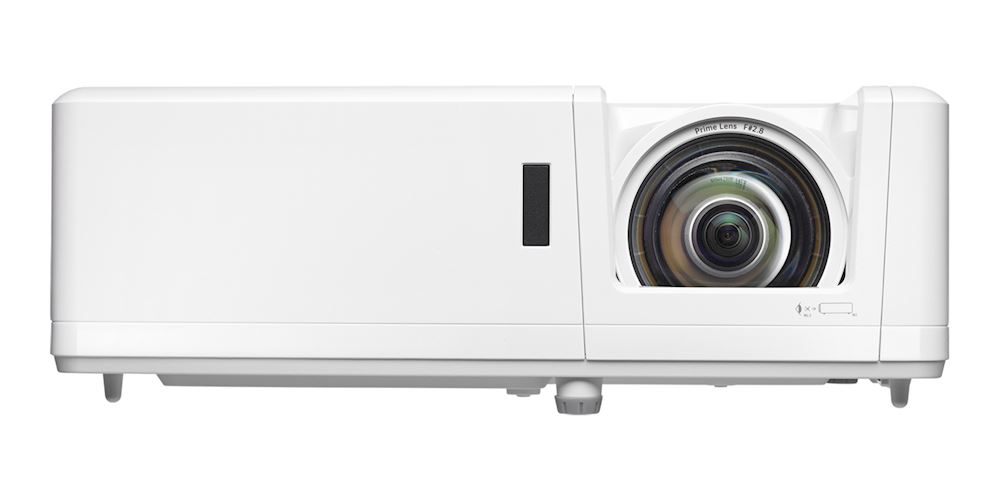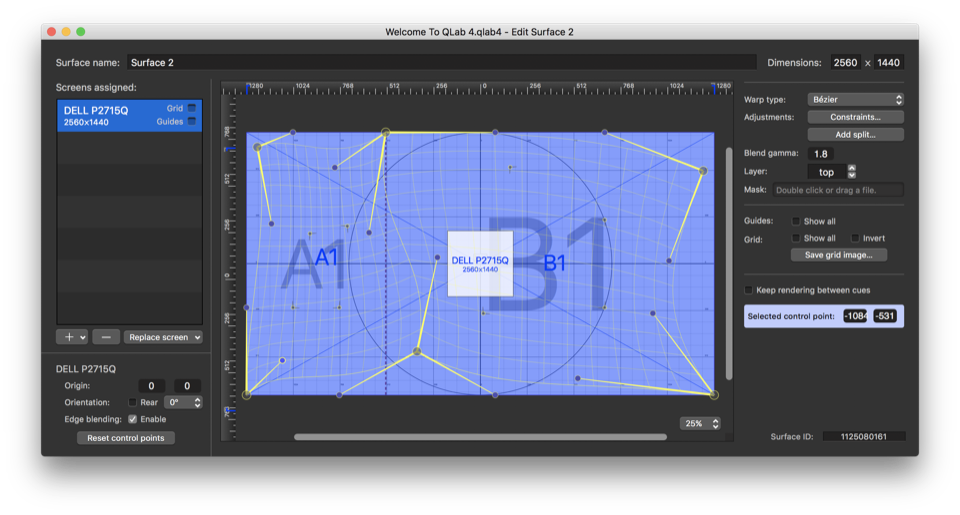- Projector Keystone Correction Software Mac
- Vertical Keystone Correction Projector
- Projector Keystone Correction Software Mac Os
- Projector Horizontal Keystone Correction
What’s more, it can read office software like. YABER Y31 Native 1920x 1080P Projector 8000L Upgrade Full HD Video Projector, ±50° 4D Keystone Correction. Get information on the LG Cinebeam LED Projector With Built-In Battery and Screen Share 1280x720. Find pictures, reviews, and tech specs for the LG PH550.
Page 2: Input/output capability, Philips creative display solutions, The philips proscreen, Philips limesco, Built-in loudspeaker for multimedia presentations, Low fan noise, Manual keystone correction
Portable Multimedia Projector
LC4100G
For further information: Philips Creative Display Solutions,
1-800-504-9978 or visit http://www.philipslcd.com.
Brilliance & ProScreen are registered trademarks of Philips Electronics N.V. Design and
specifications subject to change without notice. Printed in the United States.
The Philips ProScreen
™
4100 multimedia projector is an
advanced SVGA LCD projector with the versatility to
make light work of the most demanding presentation sit-
uation. Offering full interactive capability from any video
or computer source, it combines ease of use and reliabil-
ity with crisp, brilliant picture quality for a perfect presen-
tation every time. The ProScreen 4100 gives you high
edge-to-edge perceived picture brightness and color
accuracy that remain constant, thanks to the Philips
UHP (Ultra High Performance) lamp.
Special features
•

Philips LIMESCO
TM
(LIne MEmory Scan COnverter) inside for
full automatic Multi Scan data input handling, VGA (640 x 480)
up to SXGA (1280 x 1024) resolutions without information loss.
•
UHP lamp; up to 4000 hour lamp life with constant light output
•
Full PC control via ergonomic trackball IR Remote Control
supports 360º control of projector
•
Intuitive Graphic User Interface offering: Display and Audio
controls, 3 personal preference settings, front/rear screen
projection (horizontal mirror function), table/ceiling setting
(vertical mirror function)
•
Fully Plug and Play compatible (VESA standard DDC 1/2B)
•
Line doubling technique for perfect video performance
•
Built-in loudspeaker for multimedia presentations
•
Low fan noise
•
Manual keystone correction
T e c h n i c a l s p e c i f i c a t i o n s
Brightness
• 300 ANSI Lumen
Contrast

• 150:1
Lamp
• UHP 120 W; End user replaceable
• up to 4000 hours
Lens
• F 7.5; f= 212 mm
• Throw Distance / Picture size:
1.3m /40”; 5.8m / 200”
• Keystone correction:
10º - 23º (manually adjustable)
LCD
• 1x 6.4' Amorphous Active Matrix TFT
• 1,440,000 pixels, RGB stripe
Audio
• 6 Watt (built in loudspeaker)
Package
• ProScreen 4100
• VGA cable + MAC adapter
• Mouse cable set (for RS232 and ADB)
• Video/audio cable (RCA cable)
• Power cord
• Remote control pouch: RC, disk,
mouse guide + 3x AA batteries
• User guide (in 8 languages)
Versions
LC 4100/17
USA version
LC 4100/40
All other countries
Input/Output Capability
I N P U T S I G N A L S
Video
• NTSC-M (3.58), NTSC 4.43; PAL-B/G,
PAL-N, PAL-M; Secam
Data 1 and 2
• PC and MAC compatible, Multi scan, SXGA,
XGA, SVGA, VGA via LIMESCO full screen S
VGA display; Auto Identification
Hor. scan rate up to 80 kHz;
Vert. refresh rate up to 85 Hz.
Power In
• 100 - 127 V / 200 - 240 V (switchable);
50/60 Hz; 180 W
I N P U T C O N N E C T I O N S
Video
• S-Video (Y/C din); Video (RCA);
Stereo Audio (2x RCA)
Data 1 and 2
• 15 pin mini sub-D; PC Stereo Audio (M3)
Mains
• Mains input socket (3 pin)
O U T P U T C O N N E C T I O N S
Audio
• Stereo Line output (2x RCA)
DC Out
• 12 V DC out for accessories
Data 1 and 2
• Serial mouse (RS232) and ADB
Diagonal
Projector Keystone Correction Software Mac
Distance
Vertical
Horizontal
Size (in.)
To Screen (ft.)
Size (ft.)
Size (ft.)
24'
2.6
1.2
1.6
60'
6.4
3
4
96'
10.2
4.8
6.4
120'
12.8
6
8
156'
16.6
7.8
10.4
LCD PROJECTION DISTANCE CHART
Screen Sizes
Distance
Diagonal
Horizontal
Vertical
To Screen (ft.)
Size (in.)
Size (ft.)
Size (ft.)
5
45'
3.1
2.3
8
75'
5.0
3.8
12
112'
7.5
5.6
15
139'
9.4
7.0
Vertical Keystone Correction Projector
20
186'
12.5
9.4
LCD SCREEN SIZE CHART
LC4000/4100
Philips
Creative Display Solutions
Product
Product
Carton
Shipping
Country
Dimensions
Weight
Size
Weight
Master
of
Model #

UPC Code
W x H x D (in.)
(lbs.)
(in.)
(lbs.)
Pack
Origin
LC4100G
037849852439 15.75 x 7.25 x 13
17.5
21 x 28.5 x 15
31
1
Austria
Carton
Shipping
Country
Size
Weight
Master
of
Model #
Description
UPC Code
L x W x H (in.)
(lbs.)
Pack
Origin
LCA11070
Protective soft carrying case 037849858592 19.8 x 16.2 x 6.33
4.2
1
Netherlands
HCASE400 Protective ATA hard carrying 037849858615 26 x 13.25 x 19.75
32
1
USA
case with handles & wheels
LCA31030
Replacement bulb
037849858554
5.9 x 5.9 x 6.7
2.2
3
Belgium
LCA22020
Ceiling mount
037849
24.9 x 9.5 x 8.3
22
1
Netherlands
LCA41100
Remote control
037849858561
6.7 x 4.8 x 3.6
.5
1
Netherlands
Screen60
Portable 60' screen
037849853511
60 x 6 x 5.5
12
1
USA
PROSCREEN 4000 AND PROSCREEN 4100
As an instructor, you may need to present information in different classrooms and in different environments. No matter if your presentation will take place in a large classroom or a small classroom and whether you are using a screen, a blackboard, or an improvised wall, one of the challenges you will frequently come across is keystone.
What is Keystone Correction?
Have you ever projected an image on the wall and noticed that the image is not rectangular? If so, you understand why keystone correction is necessary.
The reason why this happens is because the projector is not sitting perpendicular to the projection surface. As a projector is turned left, turned right, or tilted up or down, you will see that a trapezoidal image is projected. You are seeing keystoning.
This distorted image is what you as an educator want to avoid. The problem is that in some classrooms there is not the perfect place for you to put a projector. This is where keystone correction comes into play.
Vertical Lens Shift
This feature makes it possible to correct an image where the top and bottom of the image are different lengths. The vertical lens shift allows you to address this issue without needing to move the projector.
You are able to raise or lower the image, taking that trapezoid shape and returning it to a rectangle.
Horizontal Lens Shift
If the left and right sides of the image are different lengths, you can use the horizontal lens shift to correct the problem. Again, this feature allows you to move the image to the left or right, correcting the trapezoid shape without needing to physically move the projector.
There are two types of keystone correction available on most projectors. There is a manual correction and a digital one. The manual correction, as its name implies, is a physical adjustment that happens to the lens.
This correction makes it so that the projector points at an angle that is higher or lower than what it would normally point to if it was on a flat surface. Manual keystoning works great in the majority of circumstances.
Projector Keystone Correction Software Mac Os
The projector does need to be an appropriate distance away from the screen to achieve the desired results.
Digital Keystoning
LCD and DLP projectors are both designed to display digital information. Information that is sent to the projector digitally, such as in a PowerPoint presentation, can be digitally converted and scaled.
Some projectors have added a selected algorithm to the scaling, which allows it to alter the image before the image reaches the lens.
This means that the image will be square, even if the projector is at an angle. This offers more flexibility when setting up a projector, especially if the setup is in a unique environment.
Potential Downsides of Digital Keystoning
If a projector comes equipped with digital keystoning, why worry about manual keystoning? While digital keystoning can be effective in some circumstances, it may add a couple of unwanted changes to your image.
Depending on what you are projecting and the application you are using with the projector, this may or may not be an issue for you.
Digital keystoning will use digital scaling to shrink the long side of the image. When this happens, information is removed from the image.
This leads to scaling artifacts that become easier to see the larger the image is.
For example, if there is text in the area that is being scaled, that text will become fuzzy. This problem becomes less evident if you’re using video or photos.
A second challenge is that the image becomes dimmer. Some of the lumen output is removed because the scaled image is smaller than the native resolution of the projector.
This is why we say that if you are moving a projector from place to place, it’s better to use the manual keystone correction.
If you know in advance that you are going to be moving your projector around, then you may want to start by searching for projectors that have horizontal and vertical shift lenses.
This way, you know you will be able to adjust the projector to meet the needs of the environment that you are in.
You should also look at the amount of correction the projector can provide. For vertical keystone correction, some projectors will offer between 12 and 35 degrees of projection. Keystone correction is a great tool if you need to move your projector from classroom to classroom.
But, remember, it is going to impact picture quality. It can lead to a slightly distorted image, especially when it comes to the sides of the screen.
See related - best HD projectors and best 4K projectors